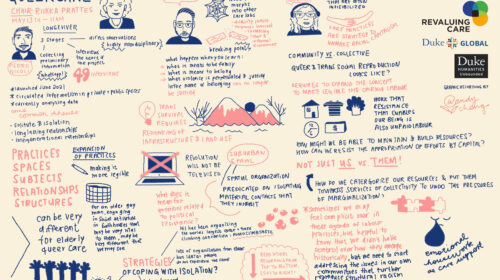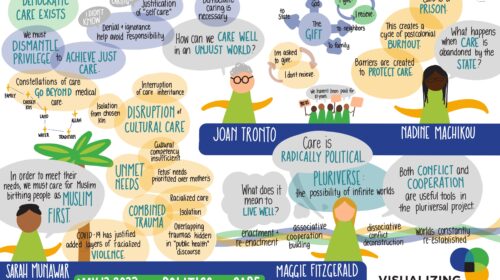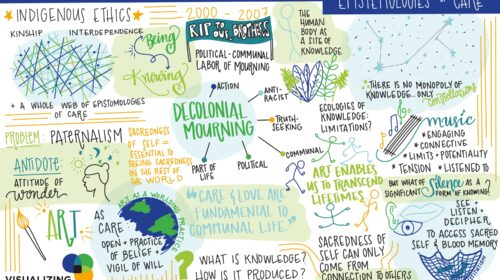
Queer Care
19 February 2023
Imagining care beyond heteronormative and nuclear household. What is trans care? Graphic recording of the panel on Queer Care during 2022 “Visualizing Care. Imaginaries & Infrastructures” conference

Politics of Care
19 February 2023
What democracy can be? What is a radical politics? Graphic recording by A Visual Approach on the politics of care

Epistemologies of Care
19 February 2023
Care and love are fundamental to communal life. Thinking about decolonize mourning. Graphic recording of a panel on epistemologies of care

Care Infrastructures in Unequal World
19 February 2023
Can we imagine alternative infrastructures? Graphic recording of a panel on care infrastructures in unequal world

Legal Structures of Care
19 February 2023
Can the law care? What law can do for unpaid care? What is the global care policy index? Graphic recording of a panel on legal structures of care